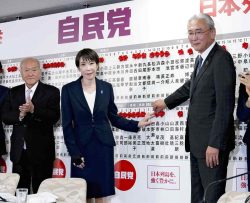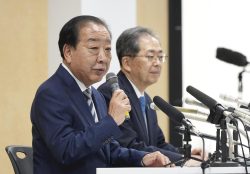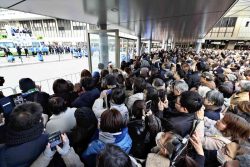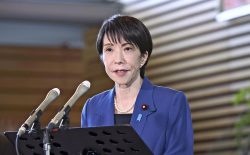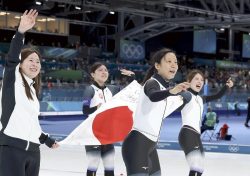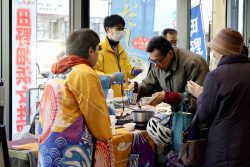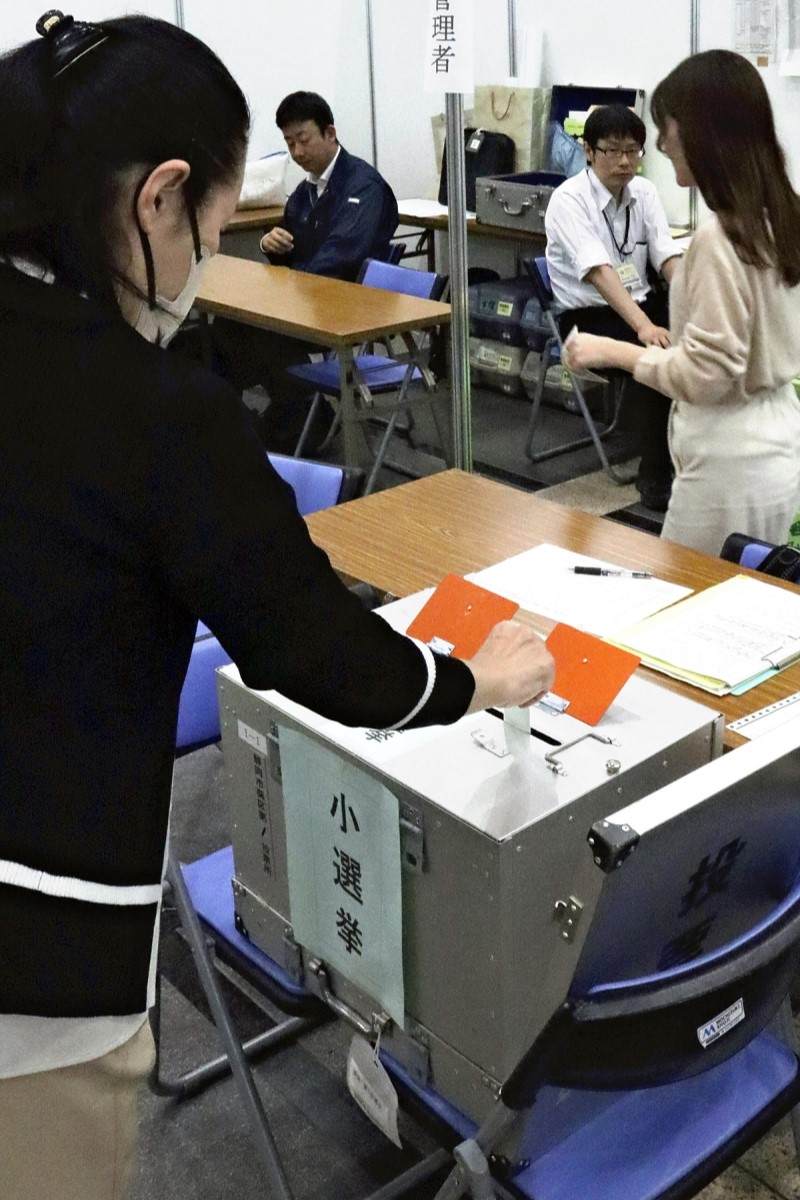
A voter casts their ballot in the House of Representatives election, in Shizuoka on Sunday.
16:42 JST, October 27, 2024
Voting for the House of Representatives election began nationwide at 7 a.m. on Sunday.
Attention will be focused on whether the ruling Liberal Democratic Party and its junior coalition partner Komeito can secure a majority of 233 seats in the lower house. The results will likely be known by midnight on Sunday.
The polls will close at 8 p.m., with exception of some areas, and ballot counting will take place immediately afterward. A total of 1,344 candidates ran in the election, vying for 465 seats in the lower house. A total of 289 people will be elected in single-seat constituencies and 176 in proportional representation segments.
Points of contention included political reforms in response to political funds scandals involving LDP factions and economic stimulus measures. The public cast its verdict on newly appointed Prime Minister Shigeru Ishiba’s handling of the administration and how former Prime Minister Fumio Kishida ran his administration.
Ishiba set 233 seats, or a majority of the 465 seats in the lower house, as the “winning line” for the ruling coalition. The LDP held 247 seats before the election campaign started, while Komeito had 32. There were 46 candidates who were involved in the hidden funds scandal.
The LDP did not endorse 12 members involved in the scandal, or allow them to simultaneously run in proportional representation sections. However, the LDP headquarters was found to have provided party branches headed by unendorsed candidates with ¥20 million, the same amount as for officially endorsed candidates. Many people are therefore watching who will win in the single-seat constituencies that included candidates who were involved in the hidden funds scandal.
During the election campaign, Ishiba called for the need to restore the public’s trust and stressed that only the LDP-Komeito coalition government could take charge of national politics.
Opposition parties criticized the scandal. Yoshihiko Noda, leader of the main opposition Constitutional Democratic Party of Japan, said, “A change of government itself is the biggest political reform.”
Komeito advocated the provision of cash benefits to low-income households, and the Japan Innovation Party called for free education.
The Japanese Communist Party stressed peace diplomacy based on Article 9 of the Constitution, and the Democratic Party for the People supported economic policies to increase take-home pay. Reiwa Shinsengumi, the Social Democratic Party and Sanseito touted the abolition of consumption tax and tax cuts, among other measures.
Top Articles in Politics
-

Japan PM Takaichi’s Cabinet Resigns en Masse
-

Sanae Takaichi Elected 105th Prime Minister of Japan; Keeps All Cabinet Appointees from Previous Term
-

Japan’s Govt to Submit Road Map for Growth Strategy in March, PM Takaichi to Announce in Upcoming Policy Speech
-

LDP Wins Historic Landslide Victory
-

LDP Wins Landslide Victory, Secures Single-party Majority; Ruling Coalition with JIP Poised to Secure Over 300 seats (UPDATE 1)
JN ACCESS RANKING
-

Japan PM Takaichi’s Cabinet Resigns en Masse
-

Japan Institute to Use Domestic Commercial Optical Lattice Clock to Set Japan Standard Time
-

Israeli Ambassador to Japan Speaks about Japan’s Role in the Reconstruction of Gaza
-

Man Infected with Measles May Have Come in Contact with Many People in Tokyo, Went to Store, Restaurant Around When Symptoms Emerged
-

Man Infected with Measles Reportedly Dined at Restaurant in Tokyo Station


